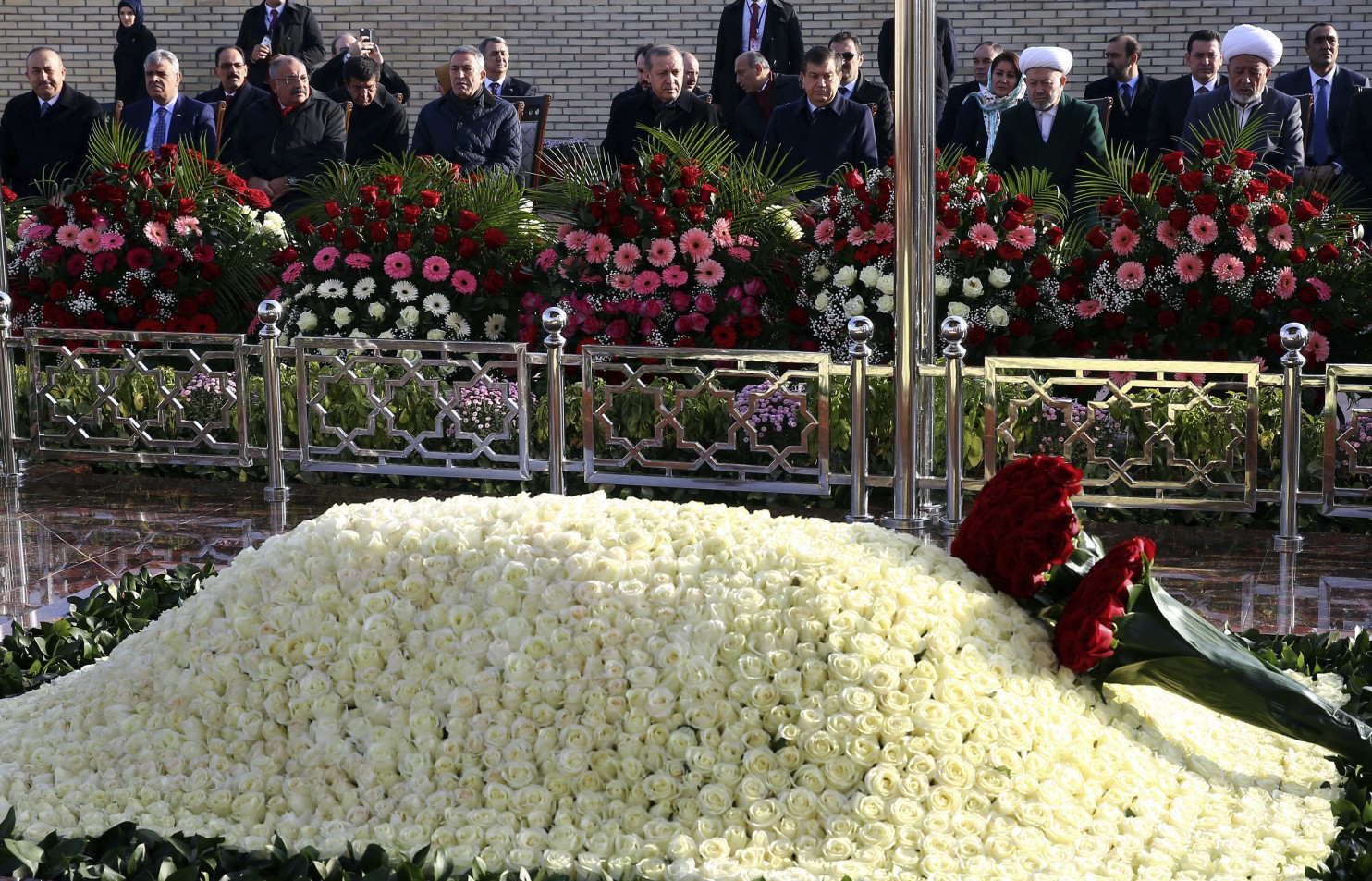 Sanjar Umarov is a former political prisoner and founder of Sunshine Uzbekistan, an international political coalition aimed at improving the economic and political situation in Uzbekistan.
Sanjar Umarov is a former political prisoner and founder of Sunshine Uzbekistan, an international political coalition aimed at improving the economic and political situation in Uzbekistan.
This year, the U.S. Justice Department, in an unprecedented and bold move, seized $850 million stemming from corrupt telecom deals in Uzbekistan, most of which centered around Gulnara Karimova, the late president’s once-globetrotting daughter.
The question, now, is what to do with the money — a sum that represents roughly 50 percent of the country’s health-care budget. With a new administration set to take office in the United States in January — and with presidential elections in Uzbekistan slated for Dec. 4 — this is a defining moment for the two countries and for the international community writ large.
Indeed, the Trump administration, and the Trump Justice Department specifically, represent among the last chances of hope for the Uzbek people. While the decision to seize the $850 million sent a blow to corrupt regimes worldwide, it was only a critical first step: What happens with the seized money will be a test case of how to tackle global corruption.
To begin to understand Uzbekistan, one must first understand the nature and extent of repression in the country. Uzbekistan is one of the most corrupt countries in the world, with Transparency International ranking it 153 out of 168 countries in its annual Corruption Perception Index. Countless Uzbek people suffer from appalling human rights abuses, torture, forced labor, unfair arrests and more as the government attempts to extort bribes from them, or as punishment when citizens try to expose wrongdoing.
I can speak firsthand to the poisonous effects of this corruption. After being arrested and falsely accused of political and economic crimes in 2005, I was forced to spend four years in an Uzbek prison. Two of those years were spent in solitary confinement, during which I was routinely tortured and forced to take psychotropic drugs.
Thanks to an international campaign — which included the State Department — I was released in 2009. But many Uzbeks are not as lucky. Human rights groups estimate that more than 12,000 people today are unfairly imprisoned on vague charges related to “extremism” or “anti-constitutional” activity. Freedom of speech, the press and assembly are almost nonexistent in the country.
The Justice Department, to its credit, recognizes this harsh reality. It is part of the reason that DOJ took action to seize the money under the Kleptocracy Asset Recovery Initiative, a program that works to “forfeit the proceeds of foreign official corruption and, where appropriate, use those recovered assets to benefit the people harmed by corruption and abuse of office.”
But although the U.S. government agrees that the money should be returned to the people of Uzbekistan, the mechanism through which to do so is much less clear. As it stands, returning the assets to the government led by Shavkat Mirziyoyev, who has served as prime minister of Uzbekistan since 2003, would be tantamount to returning it to the people who stole it in the first place.
Instead, the money should be returned to the true victims of corruption — the people of Uzbekistan. Fortunately, there is precedent for this kind of repatriation of assets: Setting up a charitable fund, similar to the BOTA Fund in Kazakhstan, would direct the assets to victims of torture and to social services in the country. For the fund to work, the Uzbek government would need to agree to not interfere or put pressure on the foundation’s operations — in any way.
But given a regime that has decimated civil society and eroded free expression, this type of charitable project is almost impossible to independently execute and monitor. So the question becomes: With corruption pervasive at every level of government in Uzbekistan, how can the U.S. government ensure that the money is returned to the Uzbek people?
First, the Trump administration should be steadfast in pushing for reform in Uzbekistan. It should use its financial and diplomatic clout to pressure Uzbek leaders to improve human rights, make space for civil society and restore democratic institutions in the country — all necessary prerequisites for a BOTA-like agreement, which ought to remain the principle goal of American foreign policy in Uzbekistan.
Until and unless those reforms happen, however, the Justice Department should hold the recovered assets in a transparent trust that is accountable to the people of Uzbekistan and that could increase in value over time. While a “sit tight” posture is far from ideal, it is the only feasible option given the state of affairs — and the only hope that the Uzbek people ever see a dime of that money.
Ultimately, the United States has a chance here to set an international standard. By returning the money to the Uzbek people, the Justice Department can provide a clear means to deter corruption, challenge impunity and bring justice to victims of human rights abuses in other countries. Doing so would also protect U.S. businesses from falling into a trap of shadowy deals with corrupt Uzbek officials — and subsequently facing multimillion-dollar penalties for bribery and misleading shareholders.
If President-elect Trump is serious about combating corruption in the United States, that commitment should extend overseas as well. Let Uzbekistan be both the litmus test and example to the rest of the world that the United States takes challenging corruption seriously.
www.washingtonpost.com, 29.11.2016




